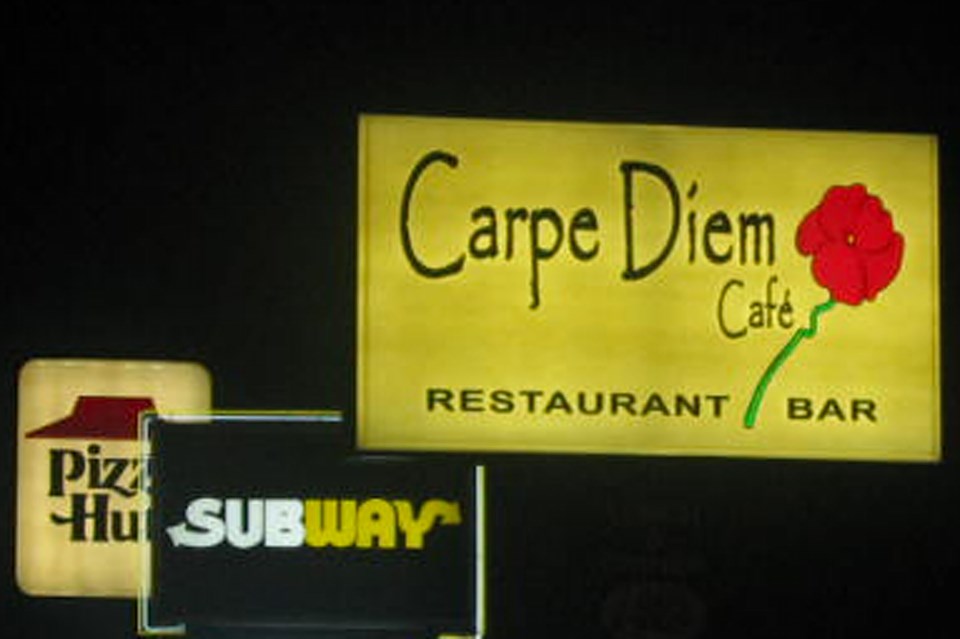Chatting with colleagues, I was trying to get a recommendation for the best restaurant in town to take my intended dining: an establishment that would impress her with its décor; a good menu that offered a variety (she can be a little persnickety about her food); good service (attentive, but not pushy); decent wine without inflated prices just because it was bottled across an ocean; no blaring TV tuned to a sports channel; seating that gave some privacy because I was going to pop the big question.
Oh, and when they brought the bill on their hand-held device, a suggested TIP that did not include a percentage paid to Doug Ford, Justin Trudeau, and their minions. Why should I tip on an imposed sales tax? This opened a can of worms – I mean a discussion - since we were on the topic of food, and because we all seemed to have an opinion on tipping.
The youngest of us, having quicker fingers, queried Google on his cell about tipping – its origin and current practices around the world. One of our senior members thought to get the answers more quickly by asking Siri the question, but we were lunching at the Casino and the noise of winning bells confused the AI persona who knows everything.
Tipping the waitstaff began about 500 hundred years ago, mainly in England, when the Lords of the Common Lands, after imbibing a goblet or two of mead, felt generous and left a few copper pennies on the table for the poor souls who cooked and served the food. The table servers (who shared the pennies with the cook who had a large cleaver at hand) remembered the person who had tipped last time and paid special attention to him on the next visit. He got the undercut while his Scottish visitor got the shank. Word spread about this phenomenon of good service and tipping, both by the Lords and by the servants.
Tipping was not adopted in all countries. In some places, the upper class preferred to pay the staff in their manor and palaces directly. That way, if the soup was off, one could deduct wages or even punish the kitchen workers by throwing them out onto the street. In some societies, it was considered an insult to offer a tip. But meanwhile, back in jolly olde England, a professor at York who taught mathematics proposed a method of calculating a tip using a factor of ten (which suited the archaic money system of the land) to work out with a pencil what the tip should be based on the bill amount. Those who understood the decimal system found this very easy to calculate and tipped accordingly.
This was all very interesting, but what, I wondered was the expected tipping rate at the restaurant where we would be dining on this most auspicious evening? One of our group, her husband is a pencil-pusher, had a method of tipping based partly on the type of place wherein they were eating: drive-throughs and counter service only – no tip, although if there happened to be a charity jar on the counter one could drop some coins in that; fast-food places like McD’s when you sat in their booths – 10%; roadhouse restaurants – 15%, but if they put on one of those paper table coverings and left you some crayons, it rose to 18%; fine dining where they used cloth tablecloths and nice table service plates and cutlery – 20%.
In all of these situations they reserved the right to add a little more gratuity, or in case of lacklustre service or so-so food, a deduction was in order. I did not comment but I am sure that the waitstaff might think my acquaintances a little parsimonious. The Interac machines themselves started at 15% and went to 24% and some calculated their base as including the sales tax.
Throwing in a red herring, one of the men asked if the tip should be based on the amount of work required to provide the service: Did you tip the bartender 10% for taking the cap off a beer? (A loonie was adequate if you carried cash). Or was a larger tip needed if the bartender whipped up the perfect Manhattan or Rob Roy or decanted a bottle of Chateau Pape de Neuf? What if the chef cooked up a lobster bisque or opened a can of Aylmer’s tomato soup? I began thinking that it might be less stressful if we stayed home and ordered in. How much do you tip the delivery person? Would that be based on mileage driven or the value of the Chinese food delivered?
The problem, we all agreed, was that, as a customer you did not know what the tipping policy was at any establishment. Did the bosses pay only the minimum wage to everyone who worked there, except maybe the chef? Did the waitstaff share their tips with others? Did the bosses deduct a percentage of the waitstaff’s billing to share with others? If a customer skipped the tip, did the bosses deduct the percentage as if the tip had been paid – at whatever percentage they had established as ‘normal’? Should the owners post a sign at the entrance saying what their tipping policy is? Maybe, “We expect you to pay part of our staff’s wages: an 18% gratuity will be added to your bill”.
Why does life have to be so complicated? All I wanted was to take my friend to dinner and ask her if she wanted to make a long-term commitment. What if the chef over-cooked the scallops, or the waitstaff spilled the water on her new dress or my credit card was declined because I forgot my PIN? A Dr Oetker’s Hawaiian pizza was looking better all the time.



